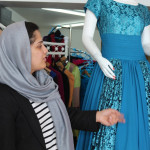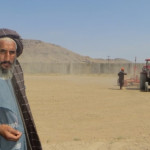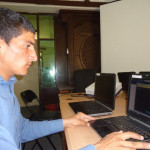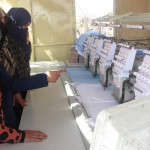
When Sania and Manizha Wafeq noticed that women in Kabul were becoming more fashion conscious and that they had more disposable income, the sisters set up a clothes company to cater to the trend.

Until recently, Afghan farmers in Zhari and Panjwayi districts in southern Kandahar province had been using local methods for leveling, plowing, irrigating and spreading seeds. They used animals to prepare their land for cultivation and spent days preparing a small piece of land for farming.

Until recently, Arghistan—a district in the southern Afghan state of Kandahar that borders Pakistan—imported most of its vegetables from Pakistan and grew poppy instead. It was the only crop that would flourish without water or modern farming techniques, there being no water in Arghistan’s irrigation canals

In Afghanistan, a proliferation of mobile phones is dramatically changing how citizens across the country are communicating with one another. But for deaf Afghans, mobile phone usage is limited to SMS text messages—a particular challenge considering that less than one-third of the population is literate.

When Marya Azimi found that she was constantly having to turn away large orders for her handicrafts company, she decided she needed help to expand the business.








Comment
Make a general inquiry or suggest an improvement.